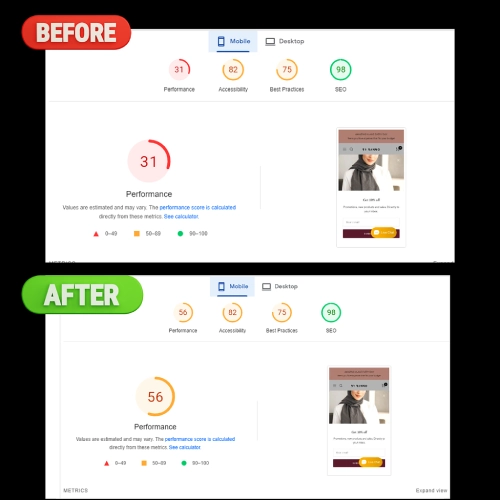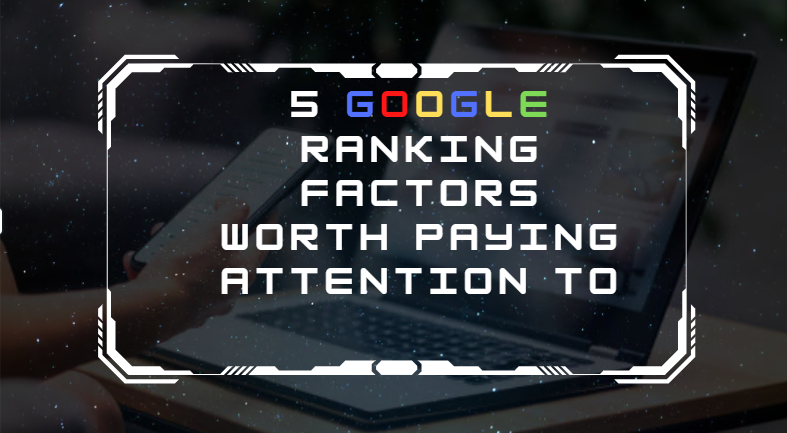Every year, Google uses many ranking signals and updates its algorithm multiple times yearly. The truth is that these ranking factors cannot even be analyzed separately. Not that they are irrelevant, but an average SEO specialist won’t have to be concerned about 200+ ranking factors.
So, in this article, we will guide you on the most crucial Google ranking factors so you concentrate on the most important things. Let’s begin.

High-Quality Backlinks.
Quality backlinks are the most crucial and primary ranking factor. The backlink is central to page rank, which is the bedrock of Google’s ranking system. You can find it on their How Google Search Works page, and external studies have shown the connection between organic traffic and backlinks. However, not all backlinks have the same value. There are plenty of factors that affect a backlink’s effectiveness and its ability to improve a page’s ranking. The two most critical ones are authority and relevancy.
Read: 5 Creative SEO Hacks That Will Get You Instant Results

Freshness
The freshness factor is another important ranking factor that shows that Google favours new and up-to-date content for search queries.
This helps Google to restrict obsolete, old pages from showing up on the first page of the search results when newly updated, fresh content will be better relevant to the search query. For instance, a search query like “politics news” has new and current web pages, and that’s due to the fact that search users desire the latest news, not an event that took place 5 years ago. However, freshness isn’t relevant to only news topics.
If you do a search for the term “best smartphones”, you will find out that every high-ranking page has the current year on its page date and title.
What is the reason for this?
People are not interested in the best smartphones in 2015. Technology is constantly evolving, and new models are released each year. However, for a search query like “how to wear a belt”, freshness isn’t required because it is still done the same way. So for search queries that would need the latest, fresh updates, always ensure your content is current.
Search intent
Search intent (also known as user intent) is a ranking factor that refers to the aim of an online search. It’s the motive that drives someone to search for a specific term. There’s always an intent to find something; that’s why people search online. But what is it? Are they looking for specific information? Or searching for products to buy?
Search intents are relevant to a user’s journey, and the way people interact with the platform is important to Google. So in the last few years, Google has invested a lot of effort and resources to upgrade its algorithm to identify and recognize search intent. Google favours pages that accurately align or are relevant to user search intent.
To understand how search intent impacts Google ranking, we have to analyze the three Cs of search intent and topical authority. They include:
Content Types
These are the general types of content. For instance, content can be classified into blog posts, landing posts, category posts and product posts.
Content Format
This is used to define the arrangement, structure and organization of content. For instance, it can be opinion pieces, listicles, “how to” tutorials, reviews and DIY/step-by-step guides.
Content Angle
This is seen as the unique selling point or distinctiveness of content based on a keyword. This gives you an idea of what searchers are looking for when entering a search query. For instance, if you search for the term “cheap shoes online”, you will realize that the majority of the high-ranking pages have prices and the keyword “buy” on their page title.
You need to pay attention to these factors when creating content for your website; else, your site will struggle to rank high for important search queries.
The next factor is topical authority. Google favours sites that are reputable and authoritative. It’s not just about backlinks. If you check the Google Quality Rater Guide, you will find that a criterion for ranking high on Google SERP is having expertise, authoritativeness and trustworthiness.
You can easily improve your site’s reputation by building credibility and knowledgeability in a particular niche. Also, make internal linking a habit because it gives Google insight into your page’s subject matter.

Content depth
Content depth has remained an important ranking factor since 2010, when many sites with thin content were penalized due to a Google update. This type of content is more or less devoid of any value to visitors.
Most people erroneously believe that depth is all about article length. This is untrue. For a website to have depth, it must embody relevance, value and user interest.
As Google algorithms continue to evolve, people are paying less attention to keywords in favour of content depth. This is because content with depth will satisfy the needs of the reader with expertise on a wide range of related subjects around a specific topic.
Thus, Google algorithms favour sites that provide in-depth knowledge.

Page Speed
Page speed is the time frame it takes for content to load on a specific web page. Improving your page speed is important if you want your site to rank high on Google results pages. To correctly assess your site performance on SERPs, use the free page speed insight tool.
Your page speed has to match up or do better than those in the top 5 of search results if it is to earn that prestigious spot on Google’s first page. If not, your page will be penalized or stuck on the second or third page, which will negatively affect your traffic.
Google pays attention to page speed since it is a good measure of a site’s quality and user experience. Sites with faster load times have lower bounce rates and better organic traffic.
Contact us today if you need assistance with your site ranking and more.


